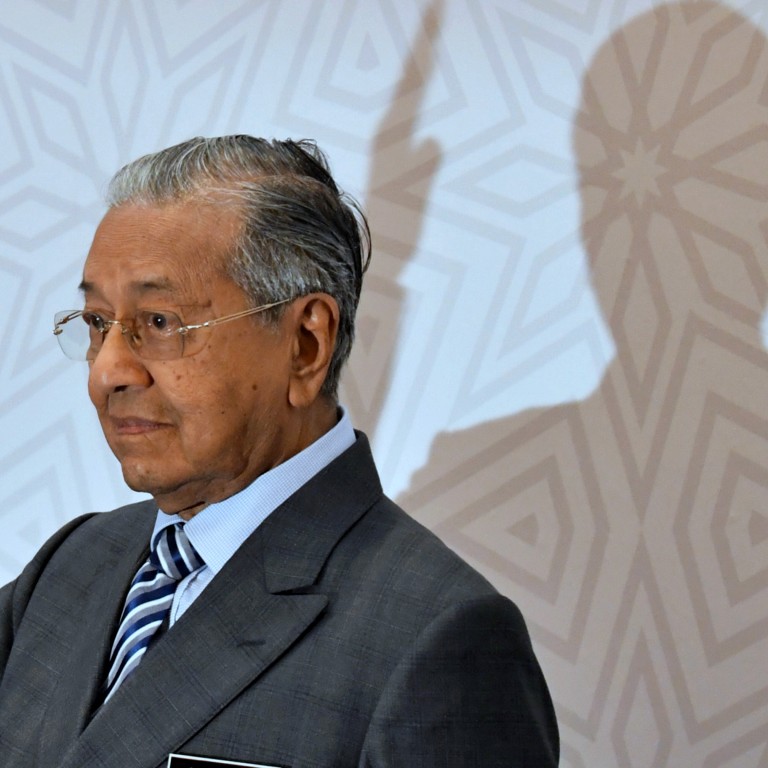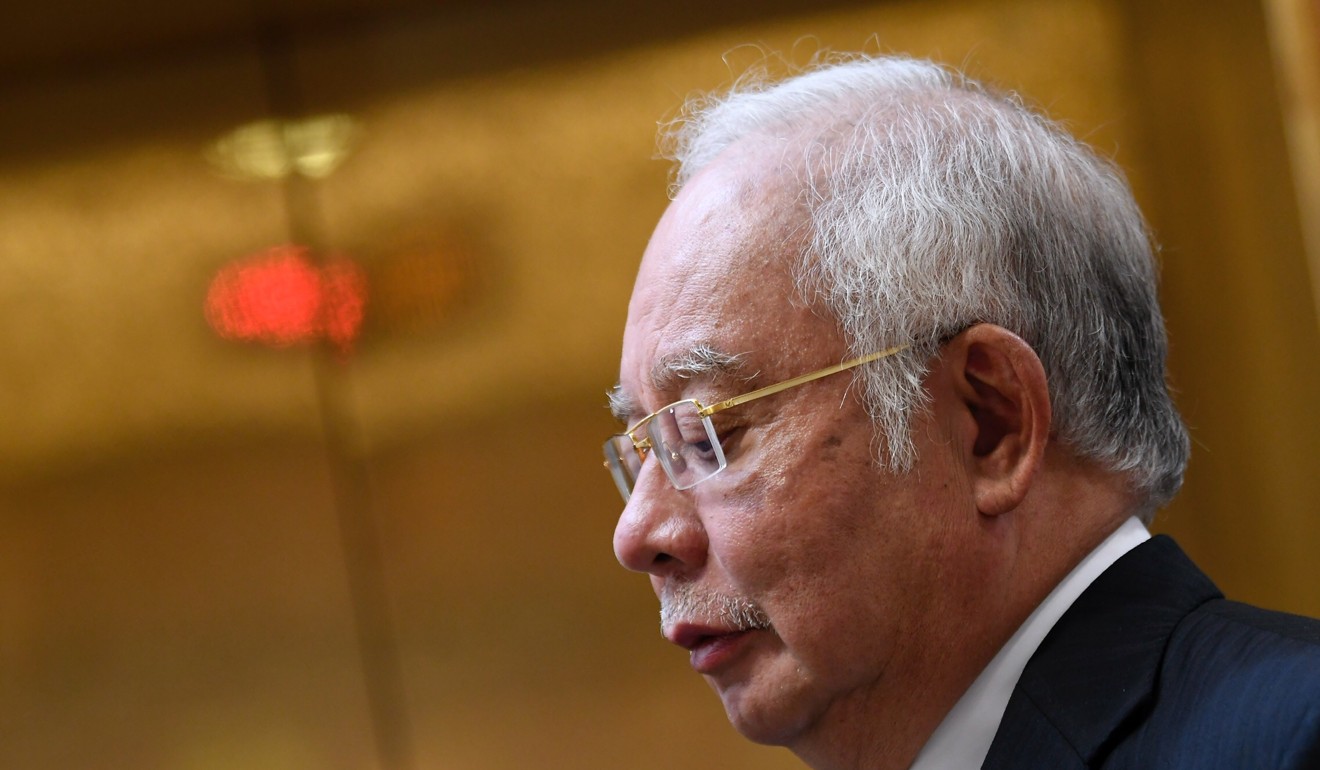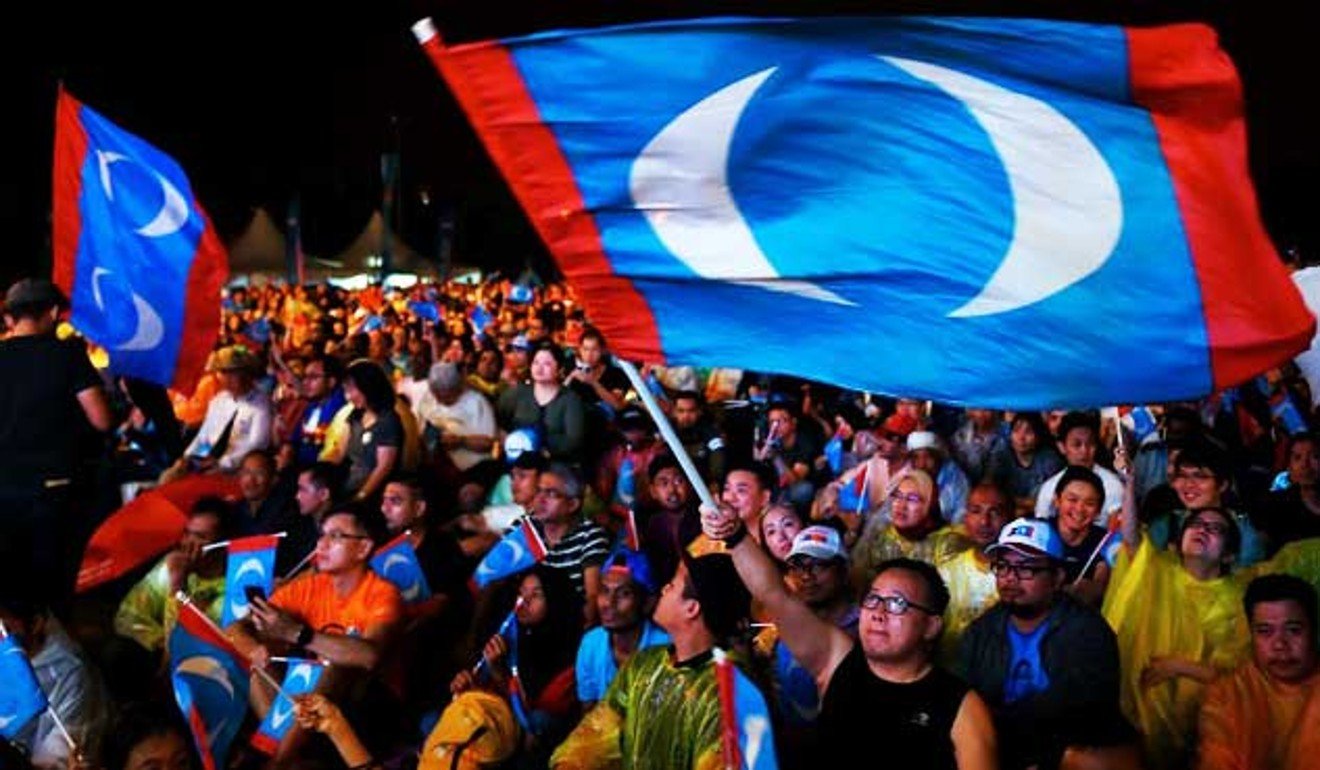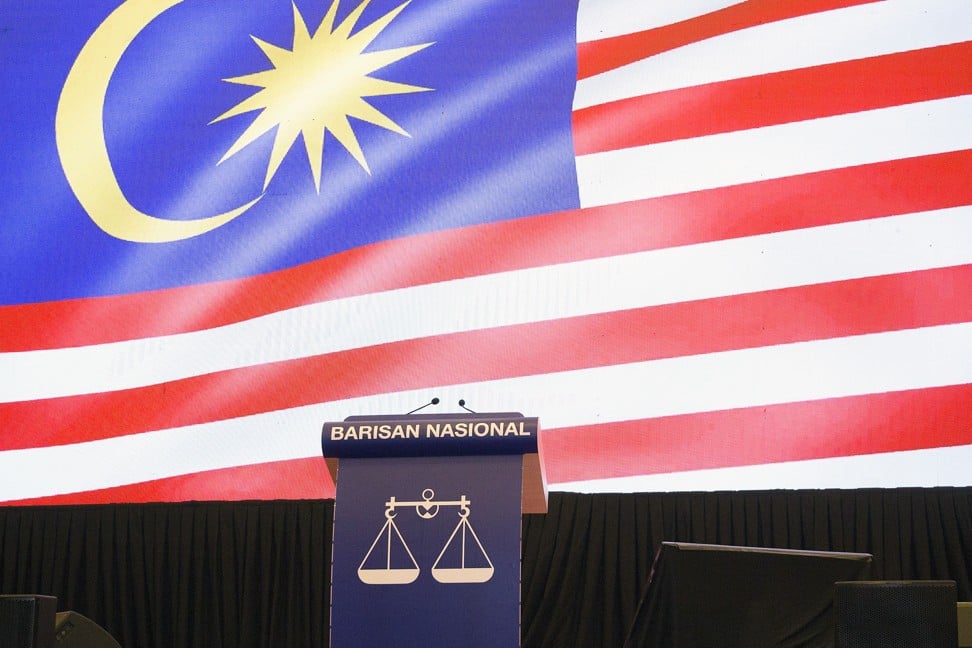
For Mahathir’s Malaysia, talk of a ‘Pakatan Nasional’ coalition casts shadow of racial tension
- Rumours of an alliance between Mahathir’s Bersatu and the opposition Umno and PAS parties has put pressure on the current administration
- Amid questions over the handover to Anwar Ibrahim, talk of a Malay-unity government threatens the country’s nascent multiracial democracy
Most recently, talk of a “Pakatan Nasional” alliance has put more pressure on the government, which has been grappling with criticism from supporters unhappy at the perceived slow pace of its reforms.
Malaysia’s Mahathir warns coalition may last only one term ‘unless they change their ways’
Both parties are exclusively open to ethnic Malay-Muslims, as well as Malaysia’s indigenous population. Politics in Malaysia has long been dominated by the majority Malay populace, who enjoy special economic and social privileges enshrined in the constitution.
Adding fuel to the speculation was Umno’s recent sacking of top member Lokman Adam, a staunch Najib supporter, for leaking a recording of party president Zahid Hamidi – who is also facing several corruption charges – saying he was willing to compromise and work with those in power.
The move, analysts say, can be seen as Umno working to “cleanse” the party of Najib and his loyalists to ingratiate themselves with Mahathir and push for potential cooperation sooner rather than later.
“It is a way for the party to renew itself in the post-election era,” said political scientist and academic Azmil Tayeb. “It doesn’t help its effort for potential collaboration if Najib is convicted for corruption, so it’s better to extricate itself from the Najib mess and start a ‘clean’ slate.”
Meanwhile, Umno’s opposition partner PAS said it was open to the idea of a “Pakatan Nasional” unity government formation in what has been seen as an attempt to find a back door into power.
PAS said it intended to table a parliamentary motion of support for Mahathir, who is expected to step down as prime minister before 2023, to eliminate any confusion on whether he commanded the confidence of the house.
Mahathir: vote in ‘thieves’ but don’t expect Pakatan Harapan to fix Malaysia after that
This show of support from the conservative Islamic party, said analyst Harris Zainul of Malaysia’s Institute of Strategic and International Studies (ISIS), would not only undermine the opposition’s role as a check and balance on the government, but also encourage politicking on who becomes the next premier.

However, the timeline for this transition remains murky, with many in PKR insisting that Anwar should take over this May, when Pakatan Harapan marks two years in power.
Anwar has dismissed the “Pakatan Nasional” rumours, calling them “lies” and saying the ruling coalition’s top leadership council would not accept such a proposal.
Finance minister Lim Guan Eng called on moderate Malaysians to stand up for Pakatan Harapan as it was “the only coalition that represents all Malaysians and firmly rejects racist and religious extremists trying to regain the power they had earlier lost through corruption and economic mismanagement, by targeting non-Malays and non-Muslims”. Lim is also the secretary general of the Democratic Action Party (DAP), another core part of the coalition.
The US$12 billion reason Mahathir’s Malaysia wants a return to agriculture
In multiracial Malaysia, race-based politics play a heavy role in governance, with all sides vying to win over the Malay-Muslim vote bank, which makes up over 60 per cent of the country’s population.
In 2018, Pakatan Harapan – which is made up of several multi-ethnic parties – managed to form government with less than 30 per cent of the Malay vote, although 95 per cent of the country’s voters of Chinese descent were reported to have backed the coalition.
Within Pakatan Harapan, Mahathir’s Bersatu and the Islamic National Trust Party (Amanah) have struggled to retain relevance with Malay voters – who view the government’s multiracial approach with some scepticism – while the DAP has been viewed as a mouthpiece for Chinese interests, with the opposition warning that the party sought to quash Malay voices.

Talk of a Malay unity government in the form of “Pakatan Nasional” and its support from PAS and Umno could spell danger for the future of Anwar’s takeover as well as the DAP’s position in the coalition, observers say – although it would not be prudent politically.
“While some politicians might be tempted by the large support Umno and PAS might have in the Malay heartlands, the same politicians would also be wise enough to recognise the popularity of the DAP in urban areas,” said Harris of ISIS.
This was echoed by Keith Leong, head of research at Southeast Asian public affairs consultancy KRA Group, who described PAS’ promise of a parliamentary show of support for Mahathir as a signal to Malay-Muslim political players that it would oppose any future political scenario that involves the DAP as a coalition partner.
AirAsia: one scandal too many, or too big for Mahathir’s Malaysia to let fail?
“Basically it’s as if they are saying: ‘We won’t support you if the DAP is on board’,” he said. “This creates a dilemma for Mahathir’s would-be successors. They are already struggling with the Malay ground: do they basically accede to PAS’ dictates or try to push on? And if they do tie up with PAS – what will this do to Malaysia’s nascent multiracial democracy?”
However, PAS’ promise might be moot, said political scientist Awang Azman Awang Pawi. “The house has rules. The Speaker of the House ensures that only important and relevant proposals will be entertained.”


